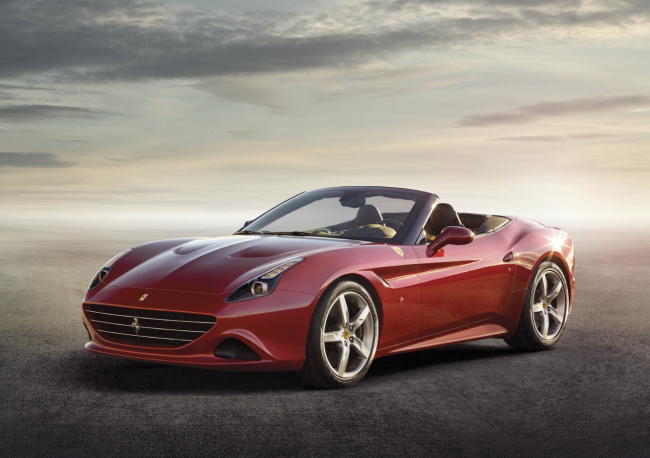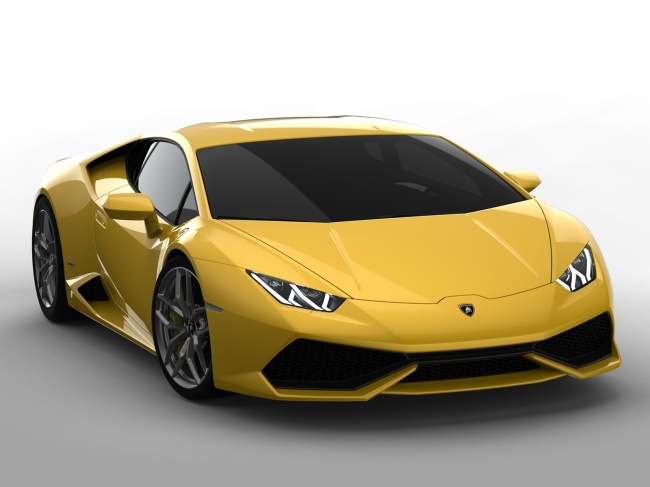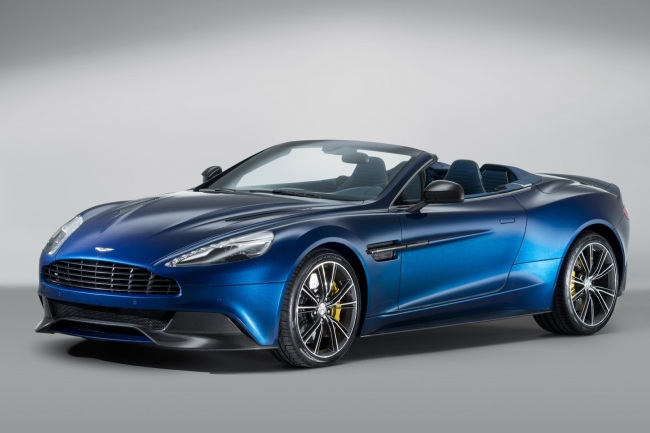Offering more than luxury
Supercars pile into Korea to target nation’s superrich
By Korea HeraldPublished : May 18, 2014 - 20:45
Gone are the days when wealthy Koreans would ogle at a Mercedes-Benz or BMW.
High-end customers with dough are now turning their eyes to supercars worth more than 200 million won ($195,000).
For Italian sports car maker Ferrari, the growth rate in Korea is faster than in Japan, its CEO Luca di Montezemolo told Korean reporters during the Geneva Motor Show in March.
In Japan, one of the top-selling markets in the world for supercars, Ferrari sales increased almost 20 percent last year. Even though Forza Motors Korea, the official Korean importer, declined to reveal the specific sales figure, some 70-80 Ferrari cars are believed to have been sold in Korea last year.
High-end customers with dough are now turning their eyes to supercars worth more than 200 million won ($195,000).
For Italian sports car maker Ferrari, the growth rate in Korea is faster than in Japan, its CEO Luca di Montezemolo told Korean reporters during the Geneva Motor Show in March.
In Japan, one of the top-selling markets in the world for supercars, Ferrari sales increased almost 20 percent last year. Even though Forza Motors Korea, the official Korean importer, declined to reveal the specific sales figure, some 70-80 Ferrari cars are believed to have been sold in Korea last year.

“With the fast expansion of the import car market here, there will be growing demand for supercars,” said a PR official for Forza Motors Korea. “The head office is also sensing the market potential, upping the ante in Korea recently.”
According to the Korea Automobile Importers and Distributors Association, import car sales hit a record of 156,497 vehicles last year, up almost 20 percent from the previous year.
Still, the key competition seems to be among diesel-powered, smaller models by German premium brands that are luring new customers with more affordable prices.
But one distinctive trend is the growing presence of high-performance supercars.
Volkswagen is the fastest-growing brand in Korea thanks to its practical Golf and Passat models, but it also owns expansive breeds whose sales have soared in recent years in Korea.
Porsche and Bentley sold 2,041 and 164 vehicles, respectively, in Korea last year. Their growth rates ― 34.6 percent for Porsche and 21.5 percent for Bentley ―outpaced the industry average of 19.6 percent.
Lamborghini, another Volkswagen unit, is also selling its models, like in many other markets, faster than it can build them.
It takes some 12 months for customers to receive the scissor-doored Aventador and 18 months for its roadster version. But for the Korean clientele, the waiting time is expected to be reduced by two to three months.
“That would be faster than in China and Japan,” said Lee Dong-hoon, managing director of Lamborghini Seoul, the Korean importer. “The head office is willing to support the recent sales momentum in Korea.”
Lamborghini sold some 30 vehicles last year in Korea, up about 50 percent from the previous year. The Huracan, the successor of its Gallardo, will make its Korean debut in July.


Other top brands such as Rolls-Royce and Maserati also posted record sales in Korea last year. The Porsche 911 sold more than 100 units as of April, already exceeding last year’s 68 unit sales.
“Price cuts, following the free-trade pact with the European Union, may be one of the key factors that are driving up supercar sales in Korea,” said a spokesperson for a European sports car brand, declining to be named.
“Moreover, modern sports cars are more comfortable and a lot easier to drive compared to the finicky past models.”
The nation’s supercar market is expected to become more crowded in the coming months.
German premium brands BMW, Mercedes-Benz and Audi, whose sales of their most expensive flagship models have been soaring recently, are expanding their portfolio of high-performance models to compete with traditional supercars.
Adding to those are British luxury brands McLaren and Aston Martin, which are finalizing their long-anticipated entry into Korea this year.
Kiheung Motors, a Korean dealer for Harley-Davidson, has recently inked a dealership contract for the two supercar brands, according to industry sources. McLaren plans to launch in September, while Aston Martin has yet to fix the date.
By Lee Ji-yoon (jylee@heraldcorp.com)
-
Articles by Korea Herald








![[Kim Seong-kon] Democracy and the future of South Korea](http://res.heraldm.com/phpwas/restmb_idxmake.php?idx=644&simg=/content/image/2024/04/16/20240416050802_0.jpg&u=)








![[KH Explains] Hyundai's full hybrid edge to pay off amid slow transition to pure EVs](http://res.heraldm.com/phpwas/restmb_idxmake.php?idx=652&simg=/content/image/2024/04/18/20240418050645_0.jpg&u=20240418181020)

![[Today’s K-pop] Zico drops snippet of collaboration with Jennie](http://res.heraldm.com/phpwas/restmb_idxmake.php?idx=642&simg=/content/image/2024/04/18/20240418050702_0.jpg&u=)